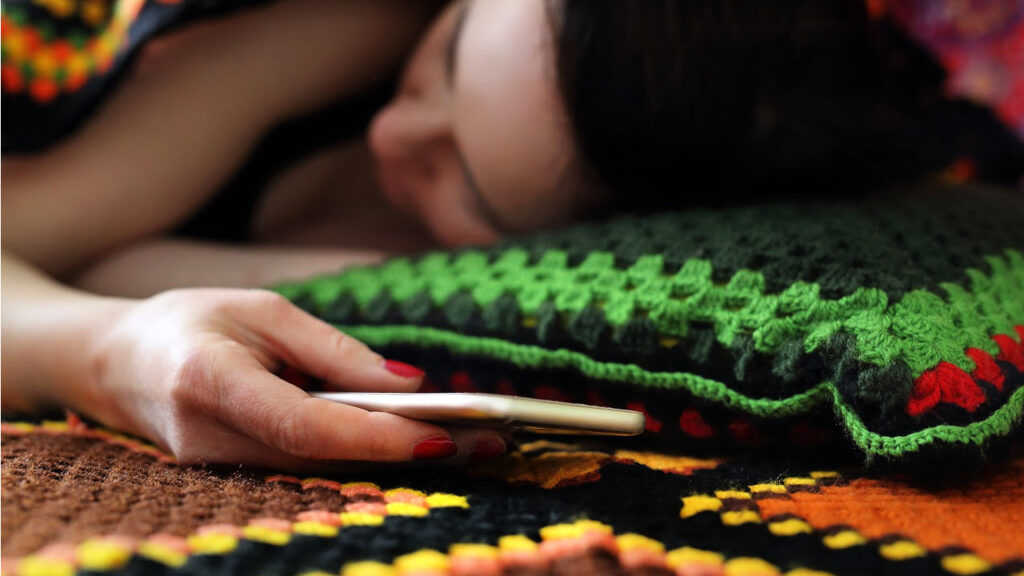
What Is The Loneliness Epidemic? We Spoke To A Mental Health Expert For Insight
Feeling lonely or disconnected from the world is never a pleasant feeling. Maybe you’ve lost touch with someone close, or you’re having a hard time communicating with those around you. We’ve all experienced loneliness at one point or another in our lives; it’s a common human emotion. This, too, shall pass, right?
Yet loneliness is a topic that has been reported at alarming rates in recent years, to the point where the world is experiencing a loneliness epidemic.
During a time when mental health is a common topic of discussion, loneliness is something we should not overlook. To get better insight into the loneliness epidemic, we reached out to Dr. Charmain Jackman. She is a licensed psychologist and founder of InnoPsych, a platform that uplifts people of color, promotes mental wellness, and aims to change the narrative around mental health. InnoPsych also offers a national directory of therapists of color and other great services.
Dr. Jackman provided eye-opening information on what the world is currently dealing with in terms of loneliness and offered recommendations on how to get through this mental health crisis, individually and collectively.
What is The Loneliness Epidemic, and How Did It Start?
Dr. Jackman identified two causes of the loneliness epidemic: technology and the COVID-19 pandemic that isolated everyone. While she emphasized that she doesn’t believe all technology is bad, having so many ways to connect with others can have consequences as well as benefits.
Things such as social media platforms, phones, Skype, etc. make it so easy to reach people, but it also makes it harder to create authentic relationships. While the worldwide pandemic definitely increased feelings of loneliness, the loneliness epidemic was already brewing beforehand.
Dr. Jackman adds that the workplace is also changing. While remote work offers flexibility, it also causes a shift in our sense of community.
What Is The Impact on the People Of Color Community?
The loneliness epidemic has dramatically impacted people of color and other underrepresented groups, shares Dr. Jackman. “This is because these communities are less likely to seek out help or don’t have as much access to mental health resources,” she explained. Another reason is the stigma surrounding mental health in these communities.
In asking Dr. Jackman which particular age group is more at risk of feeling intense forms of loneliness, she pointed out the younger generation is especially at risk as they have grown up surrounded by so much social media.
“It’s so easy to make assumptions when we don’t communicate in person because you can’t show emotion through a text. Many people also experience extreme anxiety while waiting for someone to respond to a message.”
Can This Depth of Loneliness Lead To Other Mental Health Problems?
“Yes!” Dr. Jackman responds energetically. Loneliness can lead to an increased risk of depression and feelings of disconnection. She states that people suffering from loneliness can start internalizing thoughts such as “Is there something wrong with me?” or “No one would miss me if I were gone.”
She also shares the shocking statement made by the United States Surgeon General that this mental health crisis can lead to premature death.
One red flag to look out for, says Dr. Jackman, in someone struggling with loneliness and depression, is social isolation, as they may be thinking of making a life-changing decision. Her advice to anyone noticing this red flag in someone they know is “to remind them that they matter and that they are loved.”
What Are Some Recommendations For Those Struggling With Loneliness?
Dr. Jackman offers a few helpful tips to those struggling with mental health. The first is to get connected. While this can be hard, you may ask yourself, “Where do I start?” Dr. Jackman recommends “taking small steps.”
“Make a social plan, go out for walks. If you find just one person to connect with and talk to, this can make a difference,” she explained.
Telling someone going through this to “just go out and make friends” is never helpful. It’s so much harder than it looks. Instead, increase words of encouragement.
She also suggests decreasing the time spent on social media and reading the news, which can be triggering and altogether too much information. “Be intentional about what kind of content you are taking in; make sure it’s positive.”
Lastly, Dr. Jackman always recommends therapy as a resource and would like to remind everyone that the National Crisis Hotline is there. Anyone can reach it by dialing 988 at any time, and you do not have to be in crisis in order to call.




